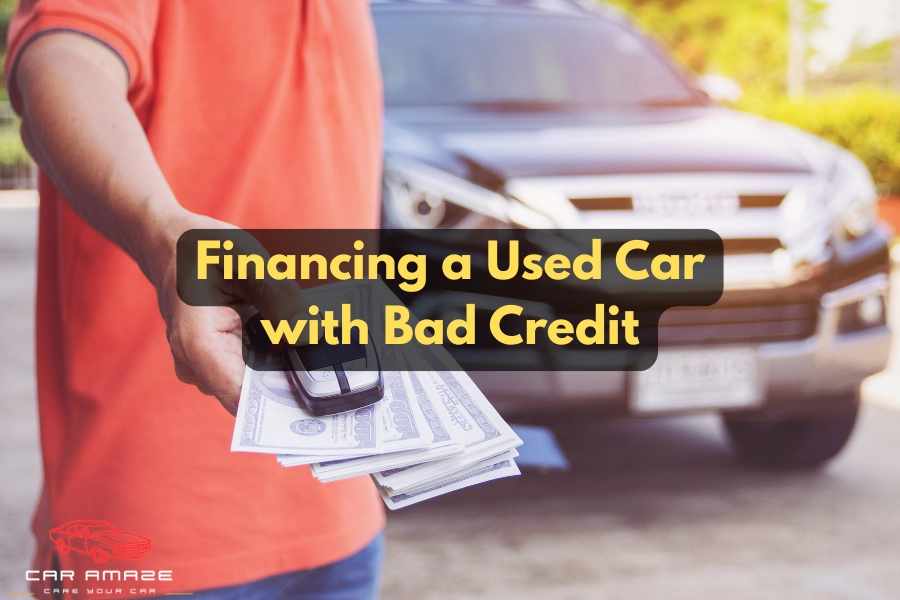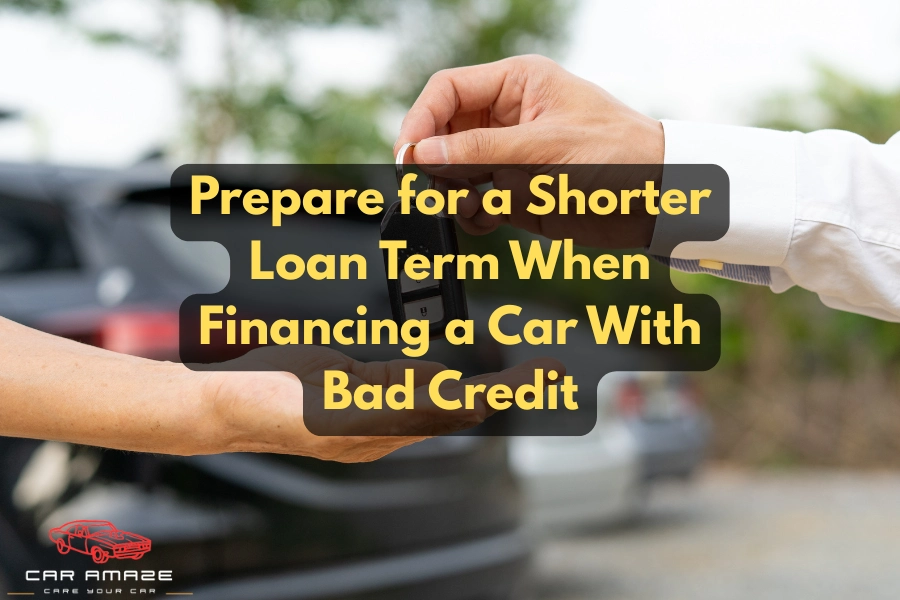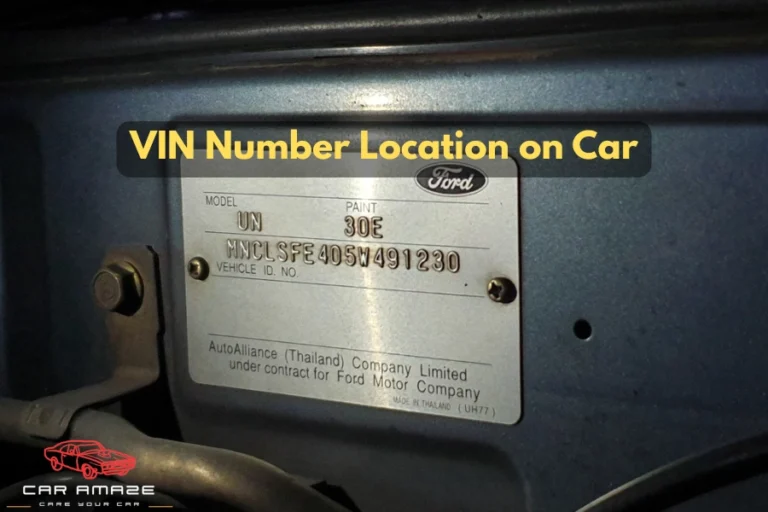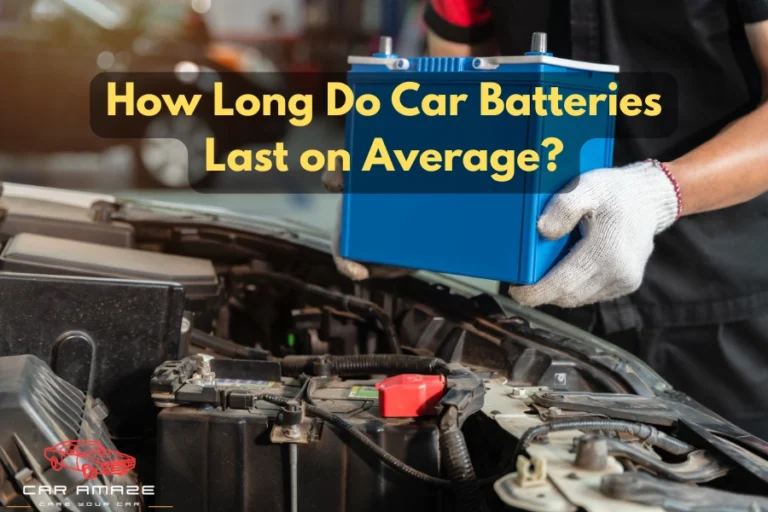Financing a Used Car with Bad Credit: Expert Tips for Approval Success

Buying a vehicle is exciting, but it can feel overwhelming if your credit score is low. Financing a car with bad credit may seem out of reach, yet many drivers secure loans every day. The process takes preparation, strategy, and an understanding of how lenders view your application. By taking the right steps, you can improve your odds and drive away with a reliable used car that works for your needs and budget.
Table of contents
- Steps to Finance a Used Car with Bad Credit
- Explore Buy Here, Pay Here Options
- Prepare for a Shorter Loan Term
- Rebuild Your Credit After Purchase
- Drive Toward a Better Financial Future
- Conclusion
- FAQs
Steps to Finance a Used Car with Bad Credit
If you have a bad credit score but still want to finance a used car, here are some steps to ease things out:
Know Your Credit Standing
Start by checking your credit report from all three major bureaus. Review the details for accuracy and dispute any errors that could lower your score. Even small corrections can make a difference in how lenders view you. Understanding your credit profile helps you anticipate possible questions from finance departments. It also gives you a clearer picture of the interest rates you might face.
Set a Realistic Budget
Determine the total amount you can afford for a car, including monthly payments, insurance, and maintenance. Avoid stretching your budget too thin, as lenders may reject applications that seem risky. A realistic payment plan shows you can manage the loan without financial strain. Factor in potential repair costs since you are shopping for a used vehicle. A balanced budget keeps you confident during negotiations.
Save for a Larger Down Payment
A bigger down payment lowers the borrowing amount, reducing the lender’s risk. This can increase your chances of approval even with a poor credit history. It also helps you secure better loan terms and interest rates. If possible, save at least 10% to 20% of the car’s purchase price before visiting a dealership. Some buyers take a few months to build savings specifically for this purpose.
Work with Dealerships Experienced in Special Financing
Some dealerships specialize in helping customers with less-than-perfect credit. These dealers often have relationships with lenders who are open to working with high-risk applicants. By choosing the right dealer, you access financing programs designed for your situation. They can also guide you toward vehicles that fit your budget and meet lender requirements. Moreover, the dealers may also guide you to fix credit after a car repossession.

Consider a Co-Signer
A co-signer with strong credit can help you secure a loan with better terms. Their good credit history reassures the lender about repayment. Keep in mind that the co-signer takes equal responsibility for the loan. This means missed payments affect both of your credit scores. Choose someone you trust and maintain clear communication about payment timelines.
Shop Around for the Best Loan
Different lenders have different standards for approving loans. Apply with multiple lenders to compare interest rates, loan terms, and fees. Credit unions, online lenders, and community banks can be more flexible than traditional banks. Each application may result in a credit check, but submitting them within a short period counts as a single inquiry for scoring purposes. Comparing offers can help you find a deal that fits your situation.
Show Proof of Stable Income
Lenders want to see that you can repay the loan. Bring recent pay stubs, tax returns, or bank statements that show steady income. Stable employment reduces the lender’s perception of risk. Even if your credit history is poor, proof of income can offset some concerns. For self-employed applicants, having detailed financial records is important for demonstrating income consistency.
Improve Your DTI Ratio
Your debt-to-income (DTI) ratio measures how much of your monthly earnings goes toward paying existing obligations. Lenders review this percentage to gauge how easily you can take on another loan. Lowering your DTI can make you more attractive as a borrower, even if your credit score is low. Pay down existing debts before applying for a car loan. Reducing credit card balances and small personal loans can free up more of your income for a car payment.
Choose a Modest Vehicle
Pick a reliable, affordable used car instead of a high-priced model. A smaller loan amount reduces the lender’s risk and makes approval more likely. It also keeps your monthly payments lower, giving you more breathing room in your budget. Focus on vehicles known for longevity and low maintenance costs. A modest choice today can help you rebuild your credit for better options in the future.
Highlight Positive Credit History
Even with bad credit, you may have accounts in good standing. Bring documentation that shows on-time payments for current loans, rent, or utilities. This can reassure lenders that you are capable of meeting obligations. Positive payment patterns can offset some of the negative marks on your report. Every bit of proof helps support your case during the loan review process.
Negotiate Interest Rates and Terms
Interest rates for bad credit loans tend to be higher. However, you can still negotiate for better terms. Be prepared with competing offers from other lenders. Show that you are serious about finding the most favorable deal possible. Even a slight reduction in the interest rate can save you hundreds or thousands over the life of the loan.
Explore Buy Here, Pay Here Options
Some dealerships operate on a buy here, pay here model. They finance the car directly through their in-house program instead of relying on outside lenders. These dealerships often work with buyers who have poor credit or no credit history. While interest rates may be higher, this option can still help you get a vehicle and start rebuilding your credit. Make sure you understand the terms before signing.
Prepare for a Shorter Loan Term
A shorter loan term may mean higher monthly payments, but it can also reduce the total interest you pay. Lenders may see shorter terms as less risky. This could help you secure approval more quickly. Aim for the shortest term that keeps your payments manageable. Paying off the loan faster also improves your credit profile sooner.

Rebuild Your Credit After Purchase
Once you have secured financing, use the opportunity to improve your credit score. Make every payment on time and in full. Set reminders or automate payments to avoid missed due dates. Over time, consistent payments will raise your score and open the door to better loan terms in the future. Treat this loan as a stepping stone to a healthier financial standing.
Drive Toward a Better Financial Future
Financing a car with bad credit is possible with preparation and strategy. Focus on presenting yourself as a responsible borrower through savings, stable income, and realistic choices. Lenders respond positively to applicants who show they can manage a loan despite past credit challenges. By taking these steps, you not only get the car you need but also start building a stronger financial future.
Conclusion
Financing the used car is challenging if you have a bad credit score. With the right approach and proper guidance, you can do it easily. Some good approaches include understanding your credit profile, setting a realistic budget, saving for a down payment, and working with the right lenders. After successfully financing the car, pay installments timely to improve your credit score.
FAQs
Can I get approved for a car loan with bad credit?
Yes, you can get approval for a car loan with bad credit but with some good approaches. To improve your chances of approval, save for a larger down payment, show proof of stable income, and choose a modest vehicle.
How much down payment should I make with bad credit?
If you have bad credit, a down payment of at least 10–20% of the car’s purchase price is recommended. This reduces the loan amount, lowers the risk of the lender, and may help secure better terms.
Should I use a co-signer if I have poor credit?
Yes, having a co-signer with good credit can improve your approval odds and loan terms. Please note that you and the cosigner will be responsible for repayment and missed payments.
What kind of vehicle should I choose if I have bad credit?
If you are able to get the approval with bad credit, you can opt for a modest, reliable, and affordable used car. Try to take a smaller loan because it will be easy for you to manage it and help you improve your credit score.
How can I rebuild credit after financing a car?
If you get the financed car with bad credit, make all payments on time to rebuild credit. If you pay the full payment without any delay, your credit score will improve, and you will open doors for better financing in the future.







